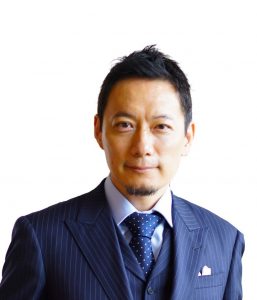YAMAUCHI, Yutaka
 Professor (PhD in Management, UCLA Anderson School)
Professor (PhD in Management, UCLA Anderson School)
external link Activity Database on Education and Research / Personal Website
Fields of Research: Organization studies, culture and art, design, service management, ethnomethodology
Academic Backgrounds: Yutaka studied computer science in Kyoto University and worked in the interdisciplinary field of computing and organization studies. After the master’s degree, he switched to organization studies and joined UCLA Anderson School as a doctoral student. During his study at UCLA, he started to work for Xerox Palo Alto Research Center (PARC), first as an intern and then full-time researcher. He wrote his dissertation based on his studies both at UCLA and at PARC and obtained his Ph.D. in Management in 2006. After working as a researcher at PARC, he joined Graduate School of Management, Kyoto University in 2010. This was the time when GSM launched its Service Value-Creation Program, a leading edge program with focus on service. In Kyoto University, he was part of the team to establish Design School. He has been teaching organization studies, service management and design.
Research Activities: Yutaka’s research focuses on organization studies, with a particular emphasis on the cultural dimensions of organizing. His work adopts an ethnomethodological approach to routine dynamics, sensemaking, and materiality, providing deep insights into how organizations function in practice. His engagement in design and service design, combined with extensive empirical research in service environments—including sushi bars, cocktail bars, restaurants, and apparel stores—has led him to explore the intersections of humanities and aesthetics. Through ethnomethodological studies of service encounters, Yutaka has demonstrated that the value of service lies not in the offering itself, the hospitality of staff, or the ambiance, but in how customers discover new ways to express themselves—customers are paying for their own selves, not on the service they receive. This insight has broadened the scope of his research, leading to the development of a new theoretical perspective on innovation and value creation. Currently, Yutaka serves as the Principal Investigator of Kyoto Creative Assemblage (https://assemblage.kyoto), a government-backed initiative dedicated to advancing and promoting this novel approach to innovation.
Courses in Charge: Theories of Designing Society, Practices of Designing Society, Organizational Culture, Organizational Behavior.
Skills and Qualities Required for Prospective Students: All successful applicants have been already familiar with basic social theories, in particular culturally oriented ones, e.g., Goffman, Garfinkel, Bourdieu, Foucault, and Deleuze among others. It takes a long time to familiarize oneself with such theoretical discourses and students need to be well prepared. Students typically do ethnographic and otherwise qualitative studies as well as video-based ethnomethodological studies.
Examples of Thesis Subjects:
Doctoral Dissertations
- Sensemaking in Cocktail Bars
- Creativity in Agencement
- Aesthetic in Innovation and Design
- Déterritorialisation and liminal identities in Sharing Economy
- Motorcycle Cultures in the U.S.
- Critique of Japanese Hospitality (Omotenashi)